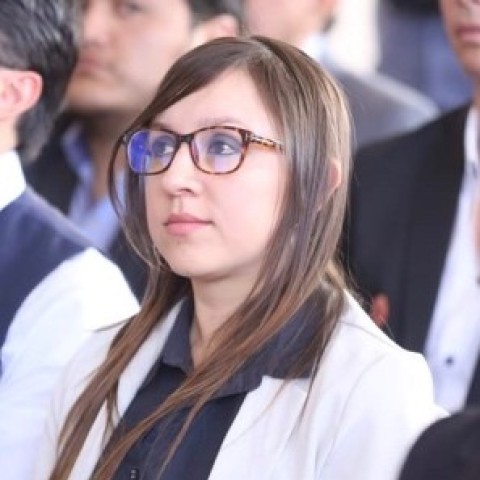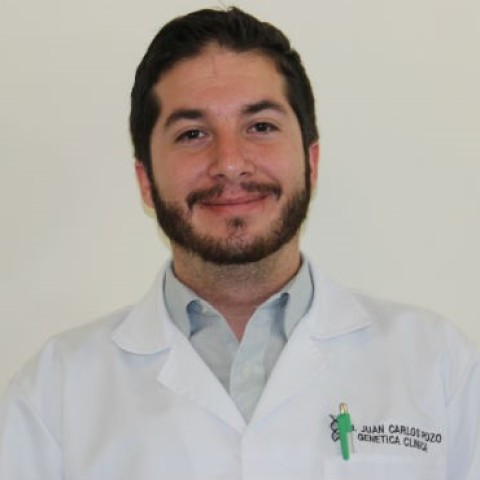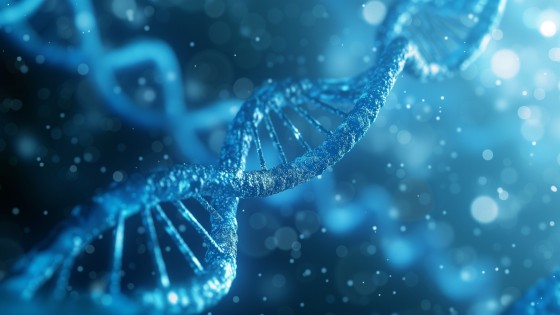Seminar on Clinical Genetics Update for Healthcare Professionals
Fechas
Registro
This program aims to educate professionals to address the growing demand for knowledge in genetics in the fields of medicine and health. The justification for this course is based on the epidemiological transition we have witnessed in recent years.
During this period, there has been a significant increase in the detection of rare genetic diseases, as well as catastrophic malformations and congenital defects.
This reality underscores the urgent need to implement training programs for healthcare personnel, focusing on basic genetics concepts, available tests, diagnostic protocols, and research related to genetic conditions.
In-person
Total duration of the course: 20 academic hours spread over 3 days
15 hours in real-time face-to-face mode
5 hours of autonomous student work activities.
Thursday from 14:00 to 19:00
Friday and Saturday from 9:00 to 14:00
Early Payment Rate: $210 (by Feb 23)
General Public Rate: $260
Group Rate (3 persons): $220
General description
General Objective:
The aim of this program is to provide comprehensive training to participants in basic genetics, genetic diseases, and available testing. This will be achieved through keynote lectures during the seminar days, which will include clinical examples for practical understanding.
In addition, specialized training will be offered in genetic counseling and the genetic bases of cancer. In this way, participants will acquire solid knowledge and practical skills to address genetic issues in the context of medicine and health.
Learning Outcomes:
| # | Learning Outcomes | Level |
|---|---|---|
| 1 | Understand basic concepts of molecular biology and clinical genetics | High |
| 2 | Recognize congenital defects, Mendelian diseases, inborn errors of metabolism, and other hereditary conditions. | Medium |
| 3 | Identify available genetic tests and diagnostic protocols for their use | Medium |
| 4 | Understand basic concepts in genetic research | High |
Targeted to:
The program is aimed at healthcare professionals such as physicians, nurses, biotechnologists, laboratory technicians, and associated technologies.
*It is desirable but not mandatory that the candidate has a background or is being trained in medicine, molecular biology, and areas related to human health.
Professionals who complete the program will be able to:
- Understand basic concepts of molecular biology and clinical genetics.
- Recognize common hereditary conditions.
- Identify the type of genetic study required according to their presumptive diagnosis.
Modality
Total duration of the course is 20 academic hours spread over 3 days
- 15 hours in face-to-face mode
- 5 hours of autonomous student work activities
The teaching methodology of the course is based on the flexible Blended learning model and project-based learning. The professor will conduct real-time presentations to the students, encouraging the student to participate with their doubts and comments. The more frequent these interventions are, the richer the collective learning will be. The sessions will revolve around particular topics or specific case studies, aiming to provide the student with a complete understanding of the theory as well as its relationship with the current industry context.
Content
Module 1 | Basic Concepts of Molecular Biology and Clinical Genetics
Learning Objective: Understand basic concepts of molecular biology and clinical genetics
Module Content:
- Genes, Genetics, and DNA
- Transcription and Translation
- Types of Variants and their Clinical Significance
- Mitosis, Meiosis, and Chromosomal Abnormalities
Module 2 | Congenital Defects, Inborn Errors of Metabolism, and Other Hereditary Conditions
Learning Objective: Recognize inborn errors of metabolism, congenital defects, and hereditary conditions.
Module Content:
- Congenital Defects
- Mendelian Diseases (Autosomal Dominant, Recessive, X-Linked, Mitochondrial) and Examples of Mendelian Diseases
- Inborn Errors of Metabolism
- Other Hereditary Conditions
Module 3 | Available Genetic Tests and Diagnostic Protocols
Learning Objective: Identify available genetic tests and diagnostic protocols
Module Content:
- Karyotype, FISH, and Array, Clinical Applications
- First, Second, and Third Generation Sequencing, Clinical Applications
- Omics Studies
Module 4 | Basic Concepts in Genetic Research
Learning Objective: Understand basic concepts in genetic research
Module Content:
- Ecuadorian Legislation for Human Research and Genetic Studies
- Current Research
Course Evaluation
The weighting of each component is distributed as follows:
| Category | Description | Percentage of Final Grade |
|---|---|---|
|
Sessions (Attendance and Participation) |
Attendance of 80% of scheduled sessions |
50% |
|
Final Exam |
Pass the Exam with an 80% |
50% |
|
|
Certificate Issuance
Certificate of Completion
Criteria for issuing the certificate of completion:
Participants must fulfill a minimum of 80% attendance to the program and achieve an 80% on the exam to qualify for the certificate of completion.
Upon meeting the completion criteria, the Universidad San Francisco de Quito will issue a certificate of attendance for the number of academic hours completed.
Schedule
Start Date: March 14, 2024
End Date: March 16, 2024
Schedule:
- Class Days: Thursday 2:00 PM - 7:00 PM; Friday and Saturday: 9:00 AM - 2:00 PM
*The schedule may undergo changes in dates and content.
Instructors

Vanessa Romero
The Graduate University for Advanced Studies October Mishima, Japan. Doctorate in Human Genetics DNA Extraction and Library Preparation for NGS. NGS Data Analysis and Interpretation of Common and Pathological Variants. Analysis of Rare Disease Variations and Variant Interpretation. Phylogenetic Analysis and Species Variation under Selection. Immunostaining and Observation by Confocal Microscopy.
Responsible for teaching basic and clinical genetics at the Department of Medicine, Universidad San Francisco de Quito.
Researcher - ongoing research:
Genetic ancestry of Ecuadorian indigenous populations and its effect on modern Ecuadorians Genetic characterization, nutrition, and diagnosis of Inborn Errors of Metabolism (phenylketonuria, maple syrup urine disease) WES for diagnosing rare diseases in low-income families

Juan Carlos Pozo
Master's in Epidemiology from the University of Cuenca. Research Coordinator at the University of Cuenca. Former Clinical Geneticist at Baca Ortiz Pediatric Hospital and Clinical Geneticist at the Center for Medical Genetics (CEGEMED).
Registration
Early Payment Rate: $210 (by Feb 23)
General Public Rate: $260
Group Rate (3 persons): $220
Payment for the program can be made through the following methods:
STEP 1: Make Payment
Transfer or Bank Deposit
Account Information:
Payable to Universidad San Francisco de Quito
Banco Bolivariano
Current Account No. 5075003350
(RUC: 1791836154001)Payable to Universidad San Francisco de Quito
Banco Pichincha
Current Account No. 3407330004
(RUC: 1791836154001)
Credit Card
Click the following PAY HERE and complete the information requested by the form. Upon completion, you will be automatically registered in the system.
With Banco de Pichincha or Banco de Guayaquil credit cards, you can access the following financing: 3 and 6 months interest-free, 9 and 12 months with interest.
STEP 2: Confirm Your Payment
If you made the payment by Transfer or Deposit, please send a copy of the deposit slip (scanned) and your personal information (full names, ID, phone, and address) to the following email: rordonez@usfq.edu.ec
* If you require an invoice with different details from the participant's, please detail the following information in the email (company name, RUC/ID, phone, address, and email).
If you made the payment with a Credit Card, it is not necessary to confirm your payment, the system will automatically register your details.
STEP 3: Registration Confirmation
You will receive a registration confirmation email with the relevant course information.
* The program coordination reserves the right to suspend or reschedule the activity if it does not have the minimum required number of students or for reasons of force majeure. In such a case, the total amount of money will be refunded to enrolled students as soon as possible.

